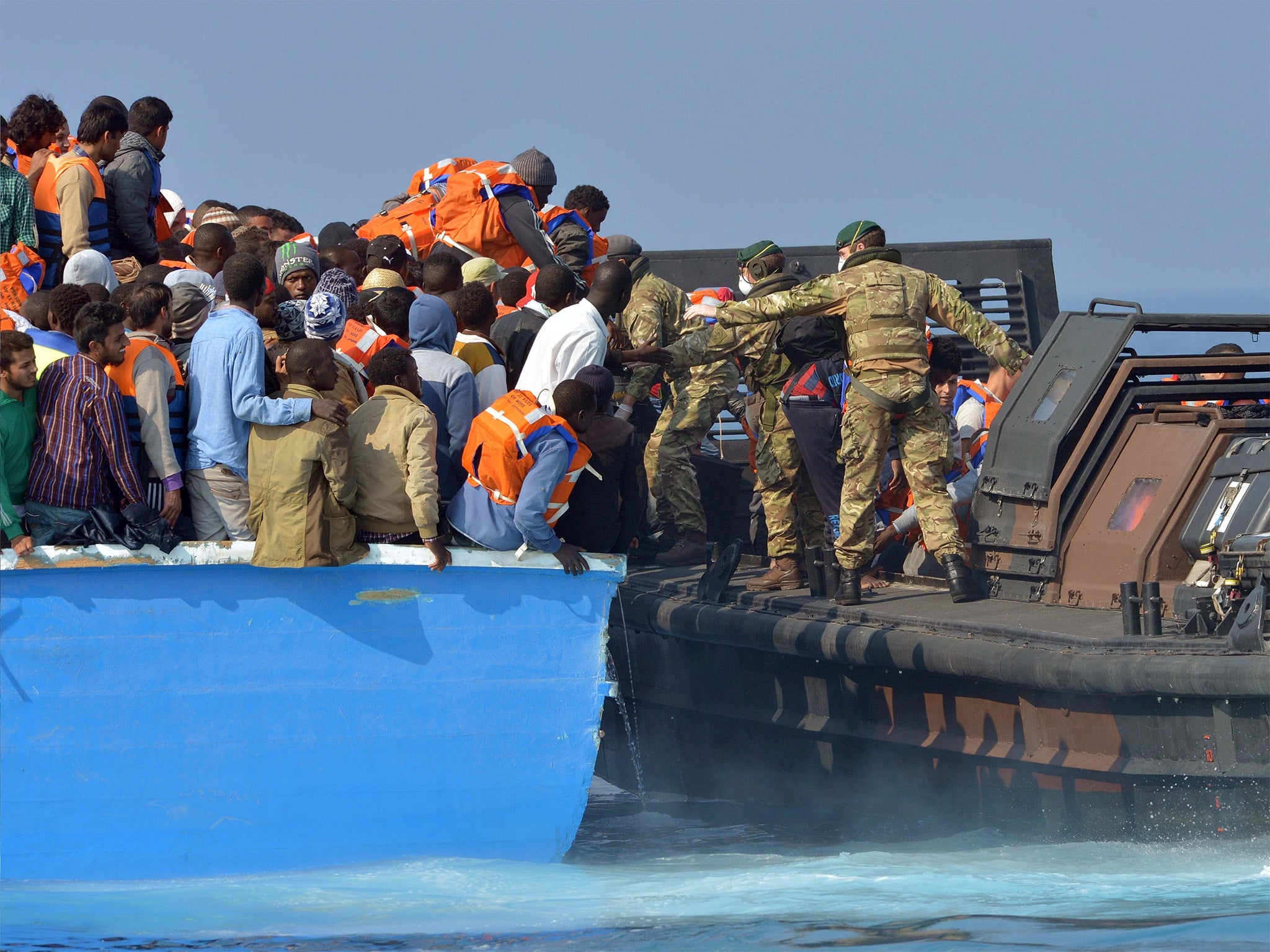The European Union’s renewed rescue operation for migrants crossing the Mediterranean has already saved over 2,900 lives in less than two months, the Ministry of Defence says.
Last month the UK dispatched HMS Bulwark, a warship capable of carrying two helicopters, to join in the international effort after a series of high-profile boat disasters led to a surge in deaths.
Around 700 people died in a single incident in late April on top of another 900 who had already previously been killed that year.
The rescues performed by the new operation have contributed to a fall in the death rate in May down from 329 in May 2014 to fewer than 100 in May 2015, according to the United Nations.
“The Royal Navy is playing a full part in the international effort to save lives at sea,” said defence minister Penny Mordaunt.
“HMS Bulwark deployed on 4 May 2015 and is working closely with the Italian Maritime Rescue Coordination Centre; efforts so far have saved over 2,900 lives.”
The in-kind assistance provided to the Italian coastguard replaces Operation Mare Nostrum, which was cancelled amid budget cuts in Italy and initial international reticence to help.
In October last year the Government said it did not support planned search and rescue operations, stating that they encourage more migrants to come to Britain.
“We do not support planned search and rescue operations in the Mediterranean,” said Foreign Office minister Baroness Anelay at the time.
“We believe that they create an unintended “pull factor”, encouraging more migrants to attempt the dangerous sea crossing and thereby leading to more tragic and unnecessary deaths.”
This position was revised by David Cameron after the surge in deaths, however.
The figures come as EU interior ministers discuss how to distribute the refugees who make it across the sea between European countries.
Most currently make landfall in Italy, Greece or Malta, but there is a growing view amongst Europe’s ministers that other countries should take a fairer share.
The UK has said any quota plan is unacceptable, however.
Subscribe to Independent Premium to bookmark this article
Want to bookmark your favourite articles and stories to read or reference later? Start your Independent Premium subscription today.


Join our commenting forum
Join thought-provoking conversations, follow other Independent readers and see their replies